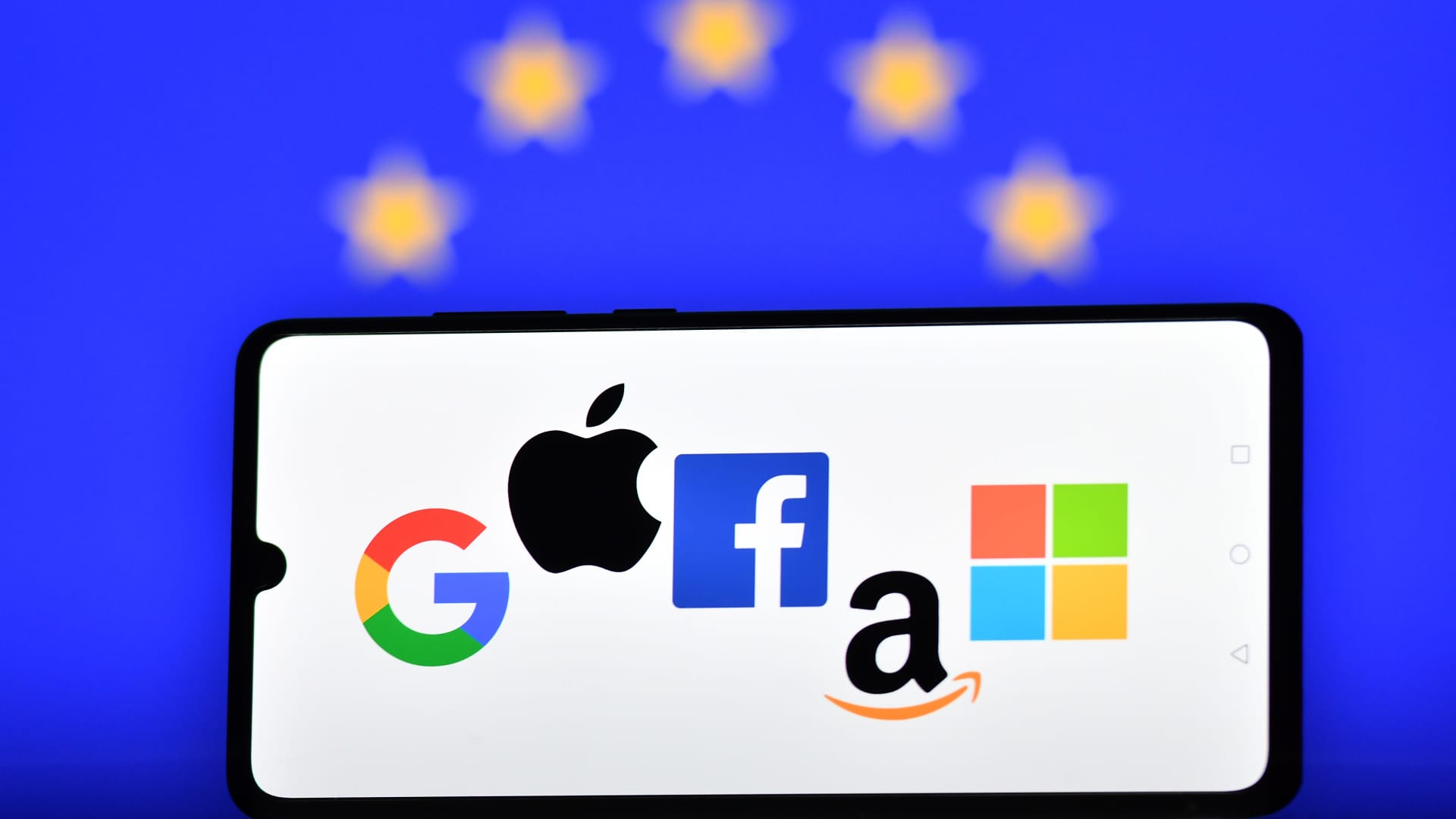
The logos of Google, Apple, Facebook, Amazon and Microsoft displayed on a mobile phone with an EU flag shown in the background.
Justin Tallis | AFP via Getty Images
The European Commission on Wednesday said it designated six tech giants as “gatekeepers” under its new Digital Markets Act — a strict set of rules that could shake up the business models of large digital platforms.
Amazon, Alphabet, Apple, Microsoft, Meta and ByteDance will have six months to bring their core platform services into compliance with the obligations laid out in the EU’s DMA, the Commission said.
The Commission said that it deems Amazon, Apple, Alphabet, Meta, Microsoft and China’s ByteDance as “gatekeepers.” The term refers to massive internet platforms which the EU views are restricting access to core platform services, such as online search, advertising, and messaging and communications.
The bloc also opened five new market investigations into U.S. tech giants Microsoft and Apple, evaluating whether some of the companies’ services should or should not qualify as gatekeepers.
As part of these probes, the EU will study submissions from Microsoft and Apple. The EU believes that Microsoft’s Bing, Edge and Microsoft Advertising platforms and Apple’s iMessage service meet the bar to be considered gatekeepers. Microsoft and Apple argue otherwise.
The EU will also investigate whether Apple’s iPadOS, the operating system behind the Cupertino tech giant’s line of iPad tablets, should be pronounced as a gatekeeper, even though the European Commission says it does not meet the criteria.
The Digital Markets Act is a ground-breaking new EU law that aims to clamp down on anticompetitive practices from big tech players. Smaller internet firms and other businesses have complained of being hurt by these companies’ business practices.
For instance, the mobile operating systems of Google and Apple — which are the primary mobile OS platforms worldwide — charge a 30% fee for in-app purchases, which companies including Spotify and Epic Games have claimed are too high.
Apple said it remains “very concerned” about the privacy and data security risks that the Digital Markets Act poses for its users. The company has said that the DMA could lead to weakened security for its iMessage platform — the EU wants Apple to make it easier for iMessage to work with rival messaging services, such as WhatsApp.
“Our focus will be on how we mitigate these impacts and continue to deliver the very best products and services to our European customers,” an Apple spokesperson said in an emailed statement to CNBC on Wednesday.
Notably, the EU also designated Chinese firm ByteDance as a gatekeeper. Its social media platform TikTok has come under greater scrutiny globally, with regulators fearing its growing popularity and its potential for spreading disinformation to a young audience.
EU lawmakers have also raised concerns about the prospect of Chinese influence over TikTok, including the possibility that Beijing could use the app to spy on users.






